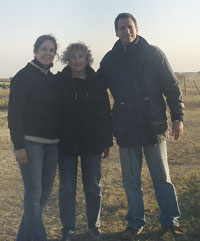Arable Farmer Focus: Seed laws may change to promote GM soya, says Federico Rolle

Argentina is considering reforming its seed laws, with a new Seed Act governing royalty payments being drafted to encourage new GM soya varieties being introduced to the Argentine market.
For many years, we haven’t paid enough for genetic improvements, with growers farm-saving as much as possible. Last year only 15% of 19m hectares of soya beans that produced a record 52.7m tonnes were planted with certified seed.
That holds back the country’s competitive ability to continue the huge growth in total grains production we’ve achieved over the past 10-15 years through not having access to the best wheat, maize and soya bean varieties, unlike our neighbours Uruguay and Brazil.
The lax controls on royalties and farm-saved seed is the main reason why those varieties aren’t being marketed in Argentina.
As usually happens in agricultural debates in Argentina, the two sides agree on the final goal, but are in major disagreement about the solution.
One option is to strengthen the current regulations under the National Seed Institute and collect royalties at farm level, during seed cleaning/saving and self-declaration. Analysts believe this will collect royalties from 50% of certified seed in the first year, but maybe, never beyond that level.
Alternatively, royalties could be taken from grain sales. This option, supported by the seed industry, is the most practical and it would give 100% coverage. But some farmers believe it’s an unfair and regressive tax, particularly as the Argentine government already collects 35% of the total soya crop value in its export retentions.
Argentina’s growers know they need to pay for genetic improvements in its key crops to increase yields. But equally, while receiving 35% less than the world price for their outputs, there’s some reluctance to accept any input cost increases.

